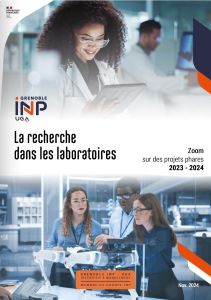 Both on the national and global level, 2015 is a pivotal year in terms of education about the environment and sustainable development: from May to October, the universal exhibition took place in Milan around the theme "Feeding the planet otherwise", in September the United Nations defined new international objectives for sustainable development, and, of course, France is preparing and hosting the United Nations conference on climate change (Paris Climate 2015 - COP 21). The challenge of the COP21 is to obtain, for the first time, a global and binding agreement to fight against climate change. The major issues of the COP 21 include finding agreements for the decarbonisation of energy production by massively resorting to non-conventional and renewable energies or nuclear energy, by reducing energy consumption especially in the building and transportation sectors through electrification and energy efficiency, and finally, by trapping the CO2 at the production sites to avoid its concentration in the atmosphere and the consequent increase of the greenhouse effect. On most of these aspects, as well as on the questions in connection with the future management of water resources, Grenoble INP - Ense3 can play a major role in energy transition, thanks to the engineers that it trains and to the research activities developed in its associated laboratories. The School has also organised a series of various events for the week of 2 to 6 November 2015 to improve the knowledge and understanding of these issues for all publics. Grenoble INP - Génie industrie and Pagora have also offered workshops and conferences highlighting their own specialties.
Both on the national and global level, 2015 is a pivotal year in terms of education about the environment and sustainable development: from May to October, the universal exhibition took place in Milan around the theme "Feeding the planet otherwise", in September the United Nations defined new international objectives for sustainable development, and, of course, France is preparing and hosting the United Nations conference on climate change (Paris Climate 2015 - COP 21). The challenge of the COP21 is to obtain, for the first time, a global and binding agreement to fight against climate change. The major issues of the COP 21 include finding agreements for the decarbonisation of energy production by massively resorting to non-conventional and renewable energies or nuclear energy, by reducing energy consumption especially in the building and transportation sectors through electrification and energy efficiency, and finally, by trapping the CO2 at the production sites to avoid its concentration in the atmosphere and the consequent increase of the greenhouse effect. On most of these aspects, as well as on the questions in connection with the future management of water resources, Grenoble INP - Ense3 can play a major role in energy transition, thanks to the engineers that it trains and to the research activities developed in its associated laboratories. The School has also organised a series of various events for the week of 2 to 6 November 2015 to improve the knowledge and understanding of these issues for all publics. Grenoble INP - Génie industrie and Pagora have also offered workshops and conferences highlighting their own specialties.Anne-Catherine Favre, teacher at Grenoble INP – Ense3 and researcher at LTHE
Grenoble IN'Press
Contact
- Vice-présidente Recherche et du Conseil Scientifique
Lorena Anghel - Vice-présidente Innovation et Relations entreprises
Gaëlle Calvary - Directeur de la DRIVE
Cédric Di Tofano Orlando
Tél. 04 76 57 43 16 - Annuaire





